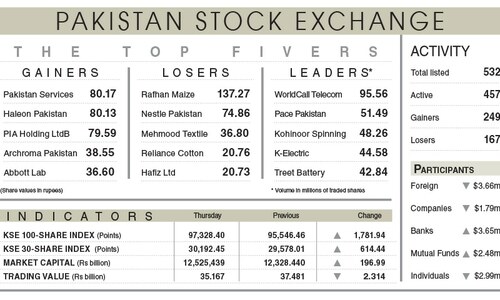KARACHI, Dec 29: The State Bank of Pakistan wants transportation cost in the country to come down in line with reduction in domestic fuel prices. In its first quarterly report of 2008-09 released on Monday the central bank has been candid to point out that transport fares of railways, airlines, commercial vehicles, most inter-city bus services were either not adjusted downwards or saw small changes after decline in domestic fuel prices.
“Transportation costs have substantial impacts on prices of other products,’’ the report states while revealing that transportation charges were increased disproportionately more when fuel prices were pushed up. The report appreciates the downward adjustment in the administered fuel prices of key fuels such as diesel, petrol and kerosene but is dismayed to note negligible reversal in transport fares and goods transportation charges.
“This behavior is not unexpected,’’ the State Bank report observes while attributing it to a general belief that while the prices move upward quickly, these do not come down generally as fast and that inflation expectations remain strong.
The commodity price shock was quite strong and it was generally believed that these prices will remain stubbornly high “for at least a decade,” the report added.
However, these prices have plummeted dramatically due to deepening of global recession. Firms and traders would like to take some time to adjust their prices and margins in these circumstances. The consumer awareness role of media, quicker settlement of import duties and other taxes may be required to accelerate dis-inflationary process in the economy.
Traders in Karachi and Lahore speak of steep price fall in about more than a dozen commercially imported commodities during August to November 2008 period. “I never witnessed such a quick and steep fall in prices of polymers, iron and steel, edible oil and many more commodities in last several decades of my experience,” a senior trader in Jodia Bazaar remarked. As he explained the prices fell down from one-third to one-half during the period when letters of credit for import were lodged till the time of unloading of goods at the Karachi Port when payments had to be made for clearance of goods.
Adding to traders’ woes was a simultaneous fall in rupee parity with dollar and the levy of taxes on imported goods on prices on which letters of credit were lodged.
Bankruptcy of traders is bound to affect the industry as imported commodities were supplied on long and short-term credit to the factories. Both traders and industrialists are now finding hard to come on an agreed price as importers are asking for higher cost and manufacturers are not willing.















































Dear visitor, the comments section is undergoing an overhaul and will return soon.